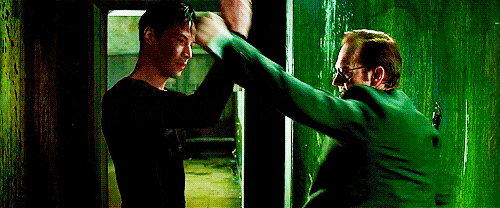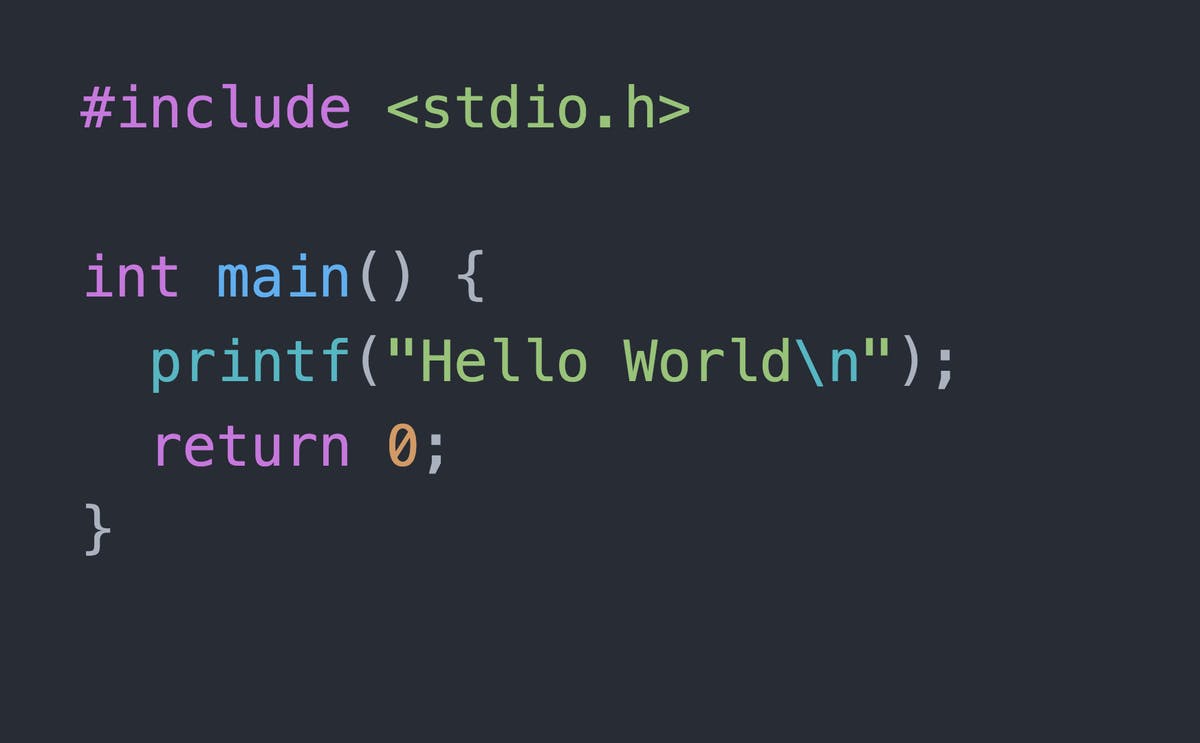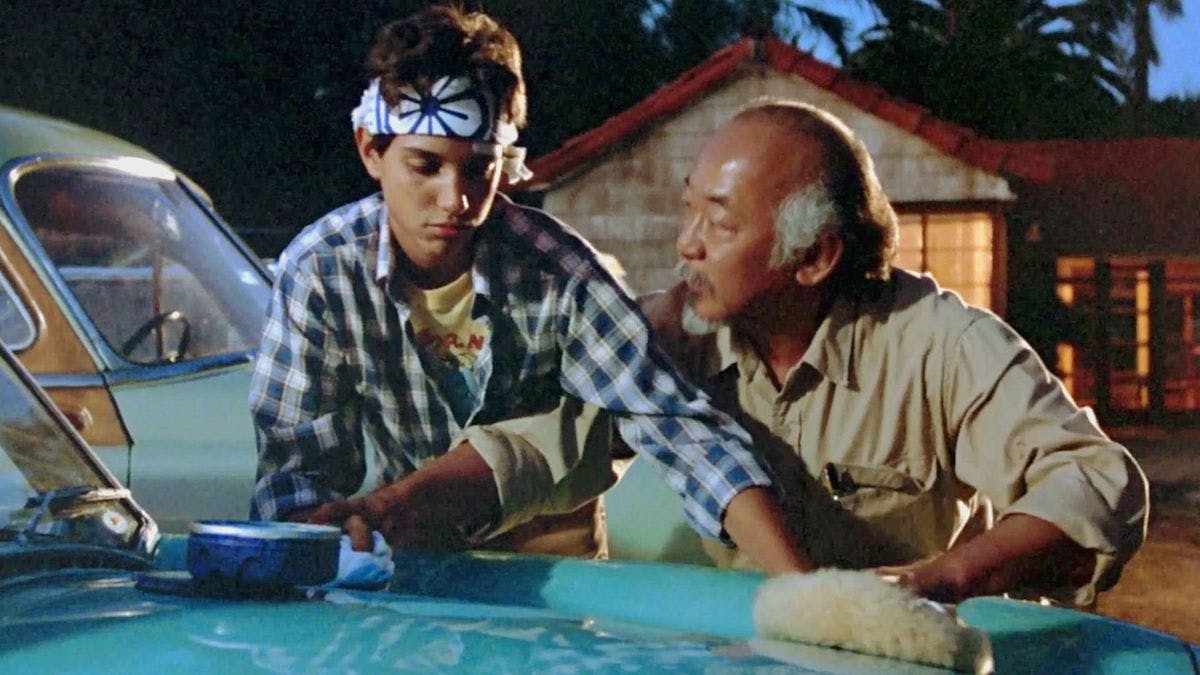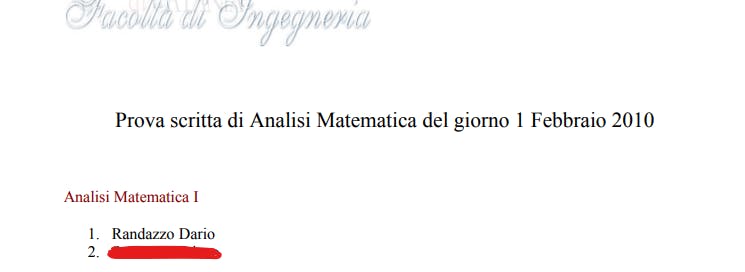How to survive University (part 2)
Facing the first exams and understanding the value of perseverance
Recap
This is the second part of the "How to survive University" blog series. You can find the first article here. Last time, I shared with you something about my high school times, and then about the first university semester during which I had several ups and downs.
January 2009 arrived, and so did my first exams.
First Exams!
The last reading week (the time frame between the last semester's lesson and the first exam) was almost over, and the first exam was coming: the Algebra written test.
At the university, most of the subjects' exams consist of two parts:
- Written test: questions and exercises,
- Oral test: once you pass the written test, you usually have a talk about the subject's theory with the professor.
I was very scared because it was my very first university exam, and the setup in the classroom was making me feel uncomfortable. It was way more formal than standard high school tests: you are just a drop in the middle of an ocean of students, so it is likely that you will not sit near familiar faces. Moreover, usually empty seats are left between you and other students. It is just you and the test.
Despite the fear, I was ready. So, I did the test and it felt good.
I managed to do almost every exercise. Some days passed, and the results were out: My Algebra study buddy (Alfio) and I took the highest scores among all the candidates! We were really proud and excited, so we looked forward to our next step: Algebra oral exam.
I did it first, and although I was really confident... I immediately stumbled across the first question, which was about one of the very first theorem demonstrations of the course. It was something really dummy, which I just skipped because I undervalued its importance.
Takeaway: if you really want to master a subject never skip basic stuff when studying, your basics need to be solid, cheating always has its backfire in life.
We proceeded, other questions arrived, and I nailed it, one after another. A tricky question arrived at last, and nailed it as well! The professor was shocked, she told me "it's not very common to have such a good and quick answer for this kind of question, I can see you mastered this subject really well, good job".
In that moment I felt like Neo, "I can see the Matrix, now!" (What an Algebra inside joke, uh?! :D ). I realized at that moment that I had reached a very high level of mastery in Algebra, that kind of level that makes you enjoy a talk with the professor about advanced topics, and you are able to talk with her as you are with your peers! It felt absolutely amazing!

Despite the first false step, she understood my commitment and she gave me the maximum grade as an encouragement to keep going with my journey, and honestly, it really really helped me psychologically: it raised my self-confidence.
Alfio did really well too: maximum grade. I had zero doubts about the outcome. We were so happy, and we were commenting on our exams when all of the sudden we met somebody really unexpected: the English professor. After a first chit chat, he kindly asked if we wanted to do the oral exam with him, AT THAT MOMENT.
I was like: "No way, I haven't studied anything for this exam so far!", but Alfio convinced me to proceed. "Crazy", I thought, "Crazy". I am going to ruin my second exam without having the time to enjoy the fruit of the first one! Poor me...
In the end, the exam was a farce, just another chit chat, and maximum grade for both.
Wow.
"What the hell was that?!" I asked Alfio, "We did it! I told you!" he answered me. One of the best "I told you" I have ever received.

Takeaway: sometimes it's just a matter of luck, when it happens, accept it and enjoy it!
I could not believe it: I took the maximum grade for my first two exams... what a start! I immediately called my parents to share the joy with them. Their support was the real key to keep going on for me.
Sadly, my third exam did not go that great. I didn't score enough on the Physics written test, and I had to carry it over to the next exam session.
I gave 2 out of 4 exams: I had struggling feelings about that, but it was something! I won some battles, I lost others... but, most of all, I put myself out there!
New Lectures
The second semester began, and the subjects were: Calculus II, Physics II, Chemistry, and Basics of Computer Programming.
What a disaster! I was not able to properly attend half of them because I didn't give Calculus I and Physics I: what a mess!
On the other hand, I could finally get my hands dirty with some coding!
"This box can contain a value, but the same box can also contain the address to another box's value".
What? The words of my "Basics of Computer Programming" professor were meaningless to me at first. It felt so abstract...
Damn it! I struggled a bit at the beginning: I was discovering variables, pointers, lists, queues, stack and heap memory! Every time that I was almost able to grasp a concept, a new one kicked in, always more cryptic than the previous ones. Argh! But I got along with it after a while.
What a nice feeling when I got my first (ever) "Hello World" on the screen.
Finally I started to unveil the mystery behind that cryptic thing that I used to call "software to make other software" during high school.

Ending my first year
I managed to deal with Basic Computer Programming's and Chemistry's exams, and it went pretty well. But now it was re-match time for Physics, which had been my first big failure.
But I didn't break: I just bent, and then I got up and prepared a "Physics assault plan"!
During the second semester, I dedicated 4 hours to Physics every week, starting the book from page 1 for the second time. A fresh new start.
I visited again the professor during office hours, but this time I prepared properly my questions, and I tried to be more diligent and professional. No more "go to Humanistics Studies" answers came out from him; I think he appreciated my commitment and my formality.
I did a lot of exercises: I solved every written test of the previous 5 years. In the end, I managed to fully master Physics I.
It felt like Karate Kid: Wax on, right hand. Wax off, left hand. Exercises one day, theory the next day. Although I would not say that the Physics professor was my Miyagi. What about office hours you would say? Well, I saw those occasions as sort of the Saturday night brawls Dani boy used to have with Johnny: just chances to calibrate my current strength.
Strictness was my Miyagi.

The exam date arrived: I was confident but also scared, because a second failure would have meant the end to me (for some weird mental construct of mine).
I went for it, and I was so nervous that I got a stomach ache for the entire written exam, but I made it! I was a bit scared by the possible attitude of the Physics professor during the oral exam, but surprisingly he was not too "aggressive" and I got a good grade!
I finally did it! I defeated my nightmare! I defeated my Kobra Kai!
PS: yes, I just finished binge watching the last Kobra Kai season...

Takeaway: learn the "game's rules" and play according to them. So, be a planner, be constant, be diligent, and even insurmountable problems will be doable.
Crazy tests
Premise: like I did with the first post, this article does not have the intent to judge the university system, but it just reports what objectively happened during my experience. A while ago, I heard that some of the unpleasant things (that I experienced) changed during the last few years.
So, the balance was pretty ok: I had enough credits to access second year, and I also tried to go the extra mile, but sadly... I failed Calculus in September. I could not spend the same amount of effort I dedicated to Physics I, simply because I did not have enough time.
Calculus had also a pretty weird "pipeline" to be done before a student had the "honor" to speak with the professor for the oral exam.
There was a written pre-test before you were eligible to do the actual written test. You had to do 3 perfect equations, and when I say “Perfect”, I mean “PERFECT”. If the result was something like "minus equal than" instead of just "minus than", it was considered a failure.
It was like: "You don't deserve to join the real tournament, kiddo. See ya next time".
You could not miss a single thing.
So, this was the complete written test procedure:
- you did the pre-test;
- you (and the other students) lived sort of limbo for about an hour;
- meanwhile, the professor was checking the results and writing down the "white-list" with the lucky ones;
- if you were among the lucky ones, you could access to the real "match";
- errors were admitted with the real written test, like any standard test, and usually it was tough but not impossible.
The stats of the Calculus' written test were stunning, here the amount of students that overcame the written tests during the first year (numbers could be slightly wrong):
- First round (January-February): 3,
- Second round (January-February): 8,
- Third round (June-July): 12,
- Fourth round (June-July): 10,
- Fifth round (August-September): 7,
- Sixth round (August-September, the one I tried): 9.
These low numbers were due to the double bottleneck: on average, only the 20-30% of people managed to go beyond the pre-test, and then only few of them (usually, less than 10) managed to do an acceptable (main) written test.
The total number of students that tried Calculus was more than 200, but less than a quarter made it.
Crazy, uh? Welcome to the Squid Game, bitch!

This was the balance of my first year: 5 out of 8 exams. Not the best, but fair enough considering the average student: I had enough credits to access the second year!
Like my professors used to say, I was that 1 out of 3 students that made it, sadly. If I succeeded it was thanks to the support of the right people: my parents, some professors and my new university friends.
Thank you all!
Second year
September was going to end, and a new study year was about to start. It also happened something new to me: my classmates drastically changed. A lot of familiar faces "disappeared", and a lot of new ones popped out.
A lot of students had to attend again the first year subjects, and it was very sad to me to give up on their company. I used to joke with a lot of them during the breaks, and now, we - the survivors - felt a bit "alone".
On the bright side, I had the chance to meet new students of different sorts: people that I just didn't get the chance to know during the first year; or people that were repeating the second year; or people that basically arrived from a completely different program (a different type of Engineering, usually).
Putting aside the emotions... new subjects kicked in! Database, Automation Engineering, Electronic Circuits and... Calculus III! No comment about the last one... I was in debt with Calculus not just with 1 but with 2 courses.
On the other hand, all of the other subjects were thrilling me! Professors were fairly good, and Database was really interesting to me! That was my first step towards the "big data world". Now I had a bare idea about how internet used to "store stuff".
Very cool!

Perseverance matters
Coming back to the main subject of the article, I overcame most of the new courses, but the elephant in the room was still there: Calculus I.
When you have a debt with old subjects, you need to double your efforts to keep up the pace with the new subjects while juggling with the old one. It was tough, but this time I knew the game's rules: I had my method, I knew how to master a topic, and how to build knowledge piece by piece.
In the middle of the February exams' storm I tried Calculus I: this time I solved the equations perfectly, and I accessed to the real game. I did it, and I had a good feeling about that. Now I just need to wait for the results.
The results' day arrived, and I was supposed to find those results on the home page of the professor's website. I kept refreshing that web page for half a day, like an obsessed. I tried to distract myself by reviewing other subjects since I had other exams coming, but this one was way more important to me.
The F5 button of my keyboard was imploring mercy, but I needed to refresh again and again.

Again and again.
And after my umpteenth attempt, a change showed up. A new file was there. I opened it.
The pdf was mostly empty, no long names list, but just few words appeared on it.
I could not believe it.
My heart stopped for half a minute, I think.
I was reading my name. MY NAME.
At least a hundred of students tried the exam this time, and only 2 lucky bastards of us made it, and I was one of them!
Wow.
WOW.
More than 10 years have passed, but I can still vividly remember the specific moment I looked at my laptop screen, and I read that pdf.

I was incredibly happy: a satisfying feeling came to me like never before, even more than what I felt for Physics, or for the high school final exam.
I prepared for the oral exam. I did it, and also this one went pretty good.
I just (re)discovered what it meant believing firmly in something, and insisting until you succeed.
Takeaway: perseverance is one of the superpowers that you definitely want within your arsenal. Insist on something; use a proper method; play your cards smartly, and you can succeed on everything.
Conclusion
Between the first and the second year, I adapted and grew up a lot. I was lucky enough to rise after falling, and not give up after the first failures, which (sadly) was the case for a lot of other students.
At this point of the story, I started to be more confident and successful. I started to enjoy my path. I started to taste what is the essence of Engineering and what are the joys of programming.
All of this happened especially thanks to my perseverance, which is the key in a lot of things in life.
Here a final wrap up for you:
- If you deal with something important for you, don't be rushy, study from the beginning, don't underestimate basics.
- Sometimes it's just about luck, when it happens: just accept it and enjoy the moment.
- Be constant and stick to your plan. Don't leave everything to the Fate: life and exams will not solve auto-magically on their own for your best.
- Be perseverant, don't give up if you don't succeed immediately. Failure is part of life, the important thing is how you react after a defeat.
I hope you enjoyed this second part, and I wonder if you agree with these new takeaways or not! In either case, feel free to leave your comment below!
See you soon with the third part!
